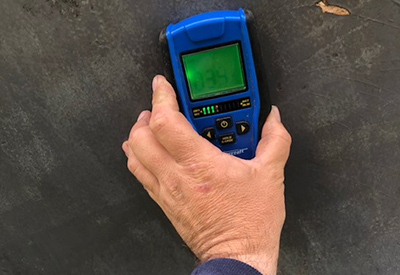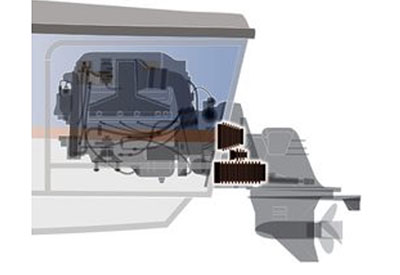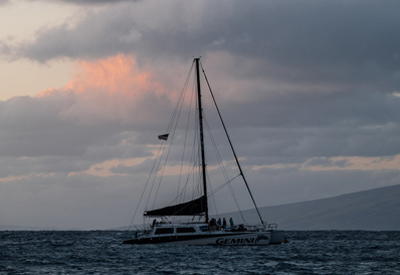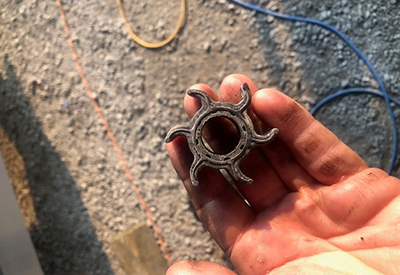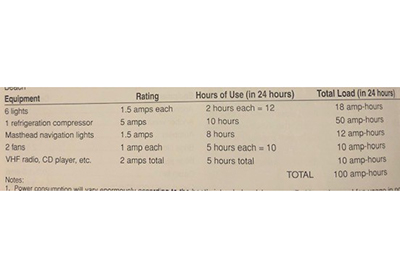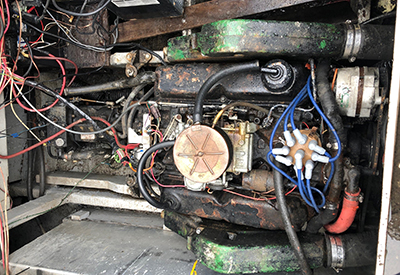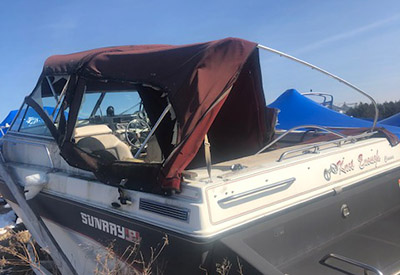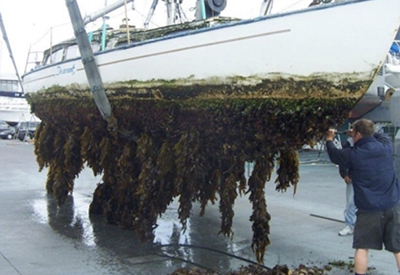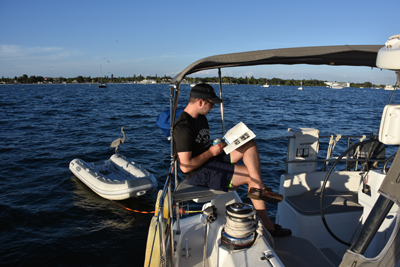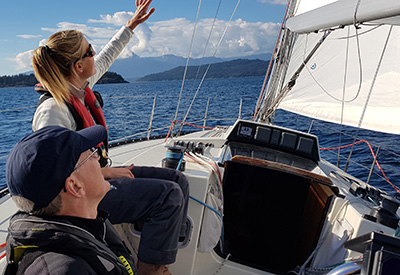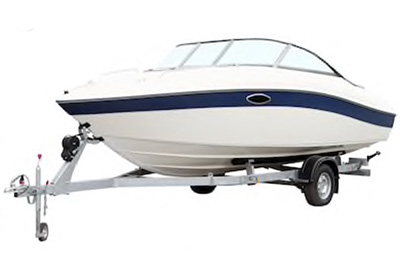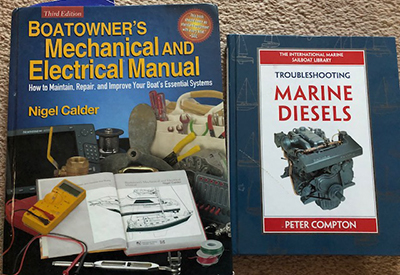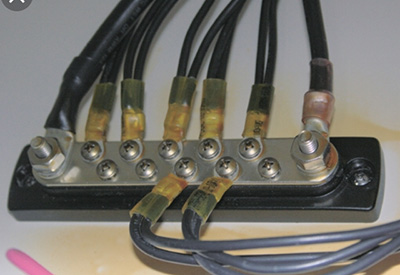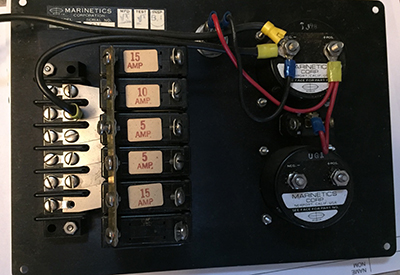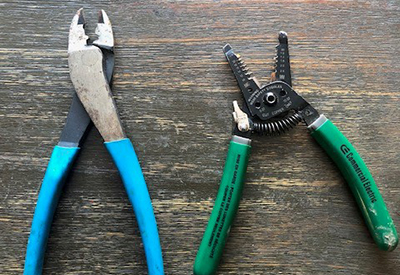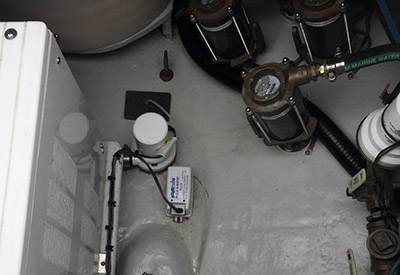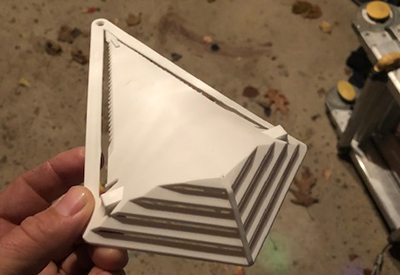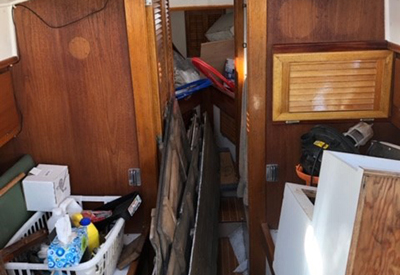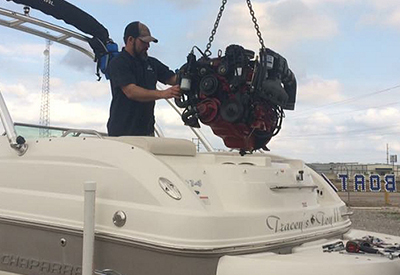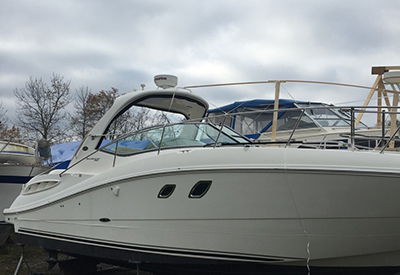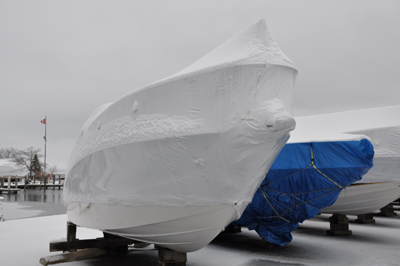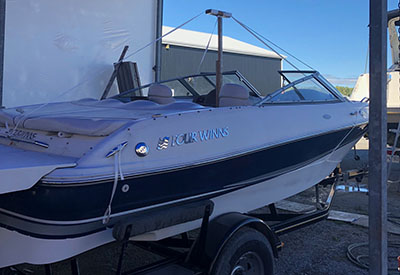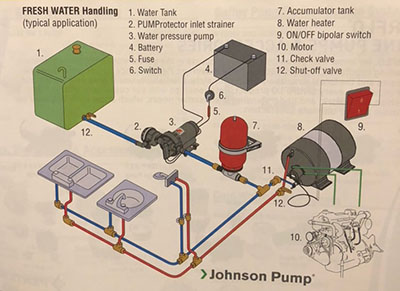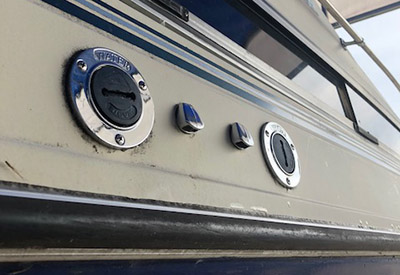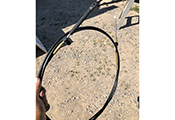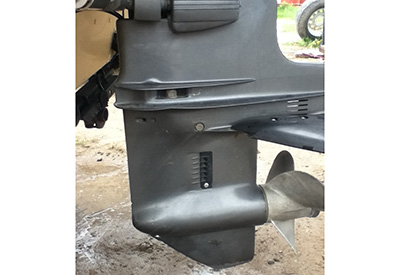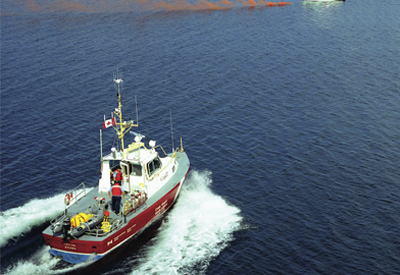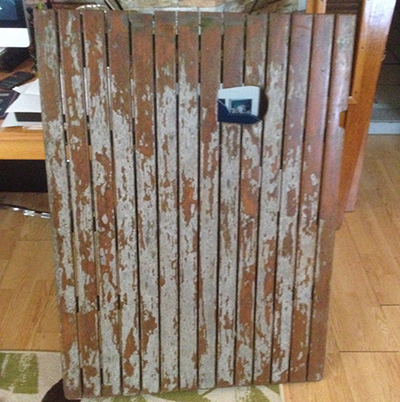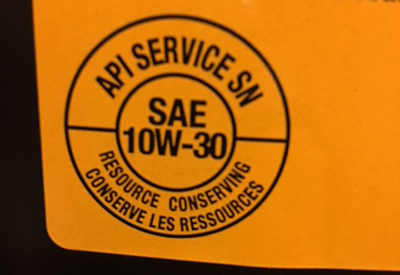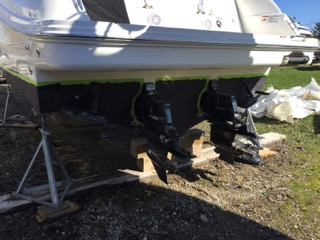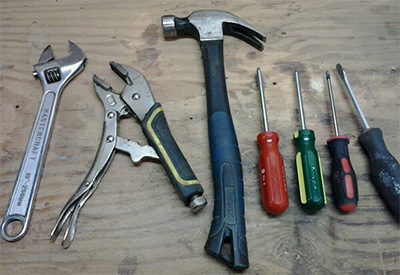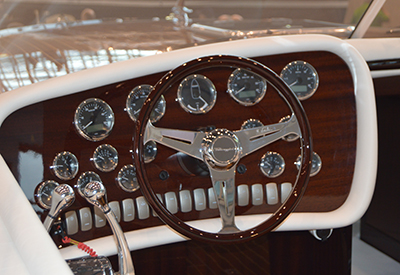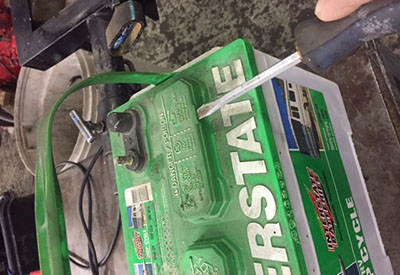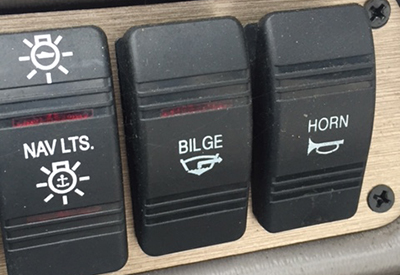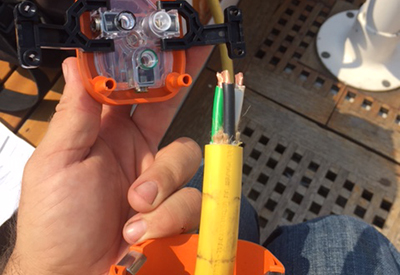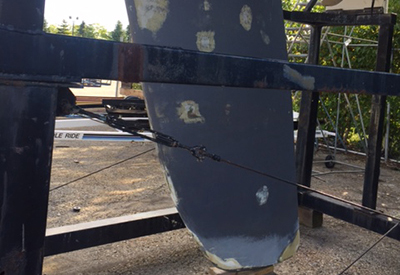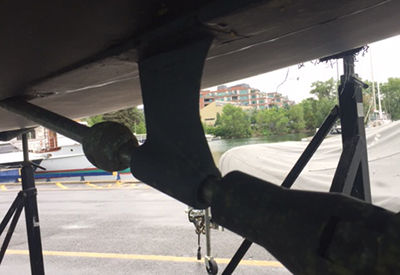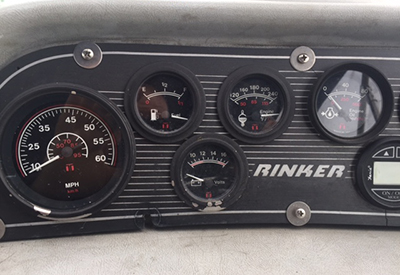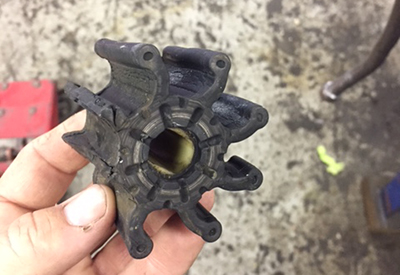July 10, 2019
Ask Andrew – What’s in a survey?
I’ve found, in speaking with boaters the last few years, that a vessel survey is a misunderstood topic. Most of us hear “I need to get a survey” from fellow boaters, at the request of their insurance company. Many boaters wishing to buy or sell a boat will also request a survey.
June 22, 2019
Ask Andrew: Sealing the boat’s prop shaft
In any boat with an inboard engine, the machinery that the drives the boat moves through the hull. An engine drives a propeller shaft, at the end of which is the propeller that moves the vessel through the water. This is as true of a bow-rider or a large sailboat, only the arrangement is different.
June 12, 2019
Good Samaritans — Rules and Risks
Have you ever needed on-the-water assistance due to a mechanical breakdown, running aground, taking on water (perhaps from striking a submerged or floating object), having a mishap with another vessel, or have a medical emergency and the authorities are not near…
June 11, 2019
Ask Andrew: Changing a water impeller
If you’ve spent any time in a boat yard during spring commissioning season, you won’t find it out of place to hear the roar of the engine, a cloud of blue smoke erupt, and a mechanic craning over the stern to look at the exhaust.
May 22, 2019
Ask Andrew: Batteries and Battery switches
As a busy marine mechanic, I tend to have the same or similar conversations often, and they’re quite seasonal. After engine check-overs and start-ups, conversations often are about batteries and battery switches.
May 8, 2019
Ask Andrew: Should I buy that boat? – from a mechanic’s viewpoint
This time of year, great deals abound. That boat with the ‘for sale’ sign looks quite attractive. The asking price is less than expected – the paint and varnish look great, with a bit of a polish and clean you can already feel the wind in your hair as you make way down the lake.
April 24, 2019
Ask Andrew: Canvaswork – covers, dodgers and biminis
Each spring, I tend to notice canvas. I wish it were because it’s been immaculately maintained and looks perfect when installed. I notice it because it’s a pain. Shrink wrap and tarps are removed, canvas is installed. Strataglass is fogged, rips and tears are evident, zippers are broken. In short, repairs are required
April 10, 2019
Ask Andrew – Fair or foul
A timely series of questions came in this week regarding the uses, functionality and the ways to purchase antifouling paint.
March 28, 2019
Dear Doris, Help! My Boyfriend Doesn’t Sail
I grew up in a sailing family. My mother comes from a long line of sailors, my dad works in the marine industry and my brother and I have travelled up and down the eastern coast racing with and against each other. Yet, somehow, I had fallen in love with a No,ON-sailor (please note, the use of capital letters).
March 27, 2019
Sea to Sky now RYA recognized training centre
Sea to Sky Sailing has just been approved as the only Royal Yachting Association (RYA) recognized training centre on the west coast of North America just in time to deliver an epic 2019 season!
March 27, 2019
Ask Andrew – Lifting, launching and trailering
I’ve had two emails over the past few weeks with a count-down to launch (47 days per the last email), and instructions on how to prep for launch, including properly marking where slings should be placed.
March 13, 2019
Ask Andrew: Top Pick of Resources – Print and Online
Recently, I’ve been asked about my most used reference books and websites – so I thought I’d share my favourites. By no means is this a comprehensive list – and each of these books and website aren’t the authority or final word on the subject.
February 13, 2019
Ask Andrew: Electrical Installations – Part 3: Grounding and Bonding
Electrical ground is a term used to describe the reference point in an electrical circuit from which voltage is measured, a common return path for electric current, or a direct physical connection to the earth.
January 23, 2019
Ask Andrew: Electrical Installations – Part 2: fuses and breakers
Last time we looked at making proper electrical connections – the tools, supplies and methods needed to make connections between components and wiring.
January 8, 2019
Ask Andrew: Electrical Installations – Part 1: Electrical Connections – basics and how-to’s
Winter is a great time to look at some of the hidden spaces on your boat – to take stock of what is aboard, areas of improvement and ways to upgrade.
December 19, 2018
Ask Andrew – Bilge Maintenance
When a boat is in the water, the bilge will often collect water that enters the boat from weather, interior leaks, and via the stuffing box. Within the bilge the bilge pumps pump water from the bilge, overboard – preventing the bilges from overfilling. We hope.
December 5, 2018
Ask Andrew: Boat ventilation
I passed by a person doing some shrink-wrap work recently, and as he installed a vent in the shrink-wrap he was completing, he muttered satisfactorily to himself ‘Air flow isn’t just for sail boats.
November 21, 2018
Ask Andrew – boating year round: off-season projects
Recently I suggested doing an off-season (winter) project with a potential client, and my suggestions was met with surprise; surprise that she wouldn’t have to move her boat, and not have to worry about additional storage costs.
November 7, 2018
Ask Andrew – How to hire a boat repair contractor
A recent conversation with a fellow contractor got me thinking: With all of the information out there, including: Websites showing repairs, YouTube tutorials, Instagram pages and snapchat streams…
October 24, 2018
Ask Andrew – Preparing your boat for winter – Part two
Last time, I described the importance of covering your boat to protect it for the winter, and listed a few options and discussed their pros and cons.
October 12, 2018
Ask Andrew – Winterization
‘Winterization’ is a broad term used to prepare an engine for extended storage – specifically through the winter season (when temperatures drop below the freezing point).
October 10, 2018
Ask Andrew: Protecting your boat for the winter – Part One
As the cold approaches, shrink-wrapping is a hot topic, and I’ve heard more than a few debates at yacht clubs about the merits and disadvantages of winter covers, tarps and wraps. First, why cover your boat at all?
September 12, 2018
Ask Andrew: Water system autumn maintenance
Nothing stops a vacation faster than a problem with the fresh water system – be it leaks, smells, plugs or loss of pressure! Any of these can make living aboard for more than a day-trip strenuous, and in many cases can take the joy and comfort out of being aboard.
August 8, 2018
Ask Andrew: Mid-summer Q&A – Part 2: Leaks – Keeping water on the outside
After the stress and rush of spring prep, taking time to get your gear comfortably on board and sorted, taking the boat out for a shakedown cruise to sort out the ‘big’ problems, you may have felt that your boat is set for the season.
July 11, 2018
Ask Andrew – Midsummer Q&A
CYOB readers often ask questions about their boats and system. For this issue, I’ve answered a common question about engine control cables.
June 13, 2018
Ask Andrew: Dealing with overheating – keeping cool on the water
Modern marine engines run at very high temperatures and rely on a few methods to keep their temperatures within an acceptable range (somewhere between 120 and 180 degrees Fahrenheit).
May 16, 2018
Pyrotechnic Distress Flares vs. Electronic Distress Strobes
Pyrotechnic distress flares have been around for decades, while electronic strobe distress flares have only been introduced in the last couple of years – and they aren’t Canadian Coast Guard approved for use in Canada, at least not yet.
May 9, 2018
Ask Andrew: How to Keep your Brightwork Bright
In the early spring, just after launch, with the hustle and bustle of engine checks, antifouling, polishing and marking sling-locations behind us, boaters soon turn to the aesthetic…
April 11, 2018
Ask Andrew – Oil and Oil Changes
All engines, including marine engines (inboards, outboards and stern drives) have many moving parts that need to be lubricated by oil in order to allow metal parts to move with as little friction as possible.
March 7, 2018
Ask Andrew: Getting to the bottom of antifouling
I once heard an argument at a yacht club. Two old salts, patiently itching to let go lines and raise sail were preparing their boats for launch.
February 7, 2018
Ask Andrew: What tools and supplies should I keep onboard?
In this time of boat show afterglow, many boaters are counting the days until launch.
January 10, 2018
Ask Andrew: How to choose a contractor for your next project
With marina and yacht club parking lots full of boats, tarps laid, water tanks drained, and only a few brave souls to be seen – now is the time to take stock of the successes and shortcomings of the past boating season.
December 12, 2017
Ask Andrew: Battery Maintenance – How do I maintain my conventional batteries?
whether you choose power or sail (or both) batteries are an important part of your boat’s electrical system.
November 8, 2017
Ask Andrew: Bilge Pumps – keeping water on the outside of the boat
Water has a funny way of making its way into a boat: through through-hulls, stuffing boxes, leaks, hatches, windows and portholes
October 11, 2017
Ask Andrew: SmartPlug looks like a smart solution
If you walk the aisles at a boat show, visit a marine store, or stop in at a repair shop, you’ll likely be inundated with digital displays, vivid touch-screens, NMEA compatible devices, and Bluetooth connectivity.
September 12, 2017
Ask Andrew: I Hit Something! Now what? – Part 2
The moment we all dread. It’s a warm sunny day and you’re out for a cruise. Suddenly the boat shudders beneath you, pings, dings and clangs are heard and you realize that you’ve hit something submerged.
August 9, 2017
Ask Andrew: I Hit Something! Now what?
The moment we all dread. It’s a warm sunny day and you’re out for a cruise. Suddenly the boat shudders beneath you, pings, dings and clangs are heard and you realize that you’ve hit something submerged.
July 11, 2017
Ask Andrew: It used to work – but now it doesn’t! Common remedies to common problems mid-season
For most of us – this is the time to make the most of the boating season – launch and set up are done. Systems have been recommissioned. Let the fun begin!
June 7, 2017
Ask Andrew: Checking your engine out for the summer ahead
For Powerboaters, the engine is the heartbeat of the boat – no engine, no movement. With some simple preventative maintenance tips, time on the water can be maximized, while avoiding some potentially costly repairs.

